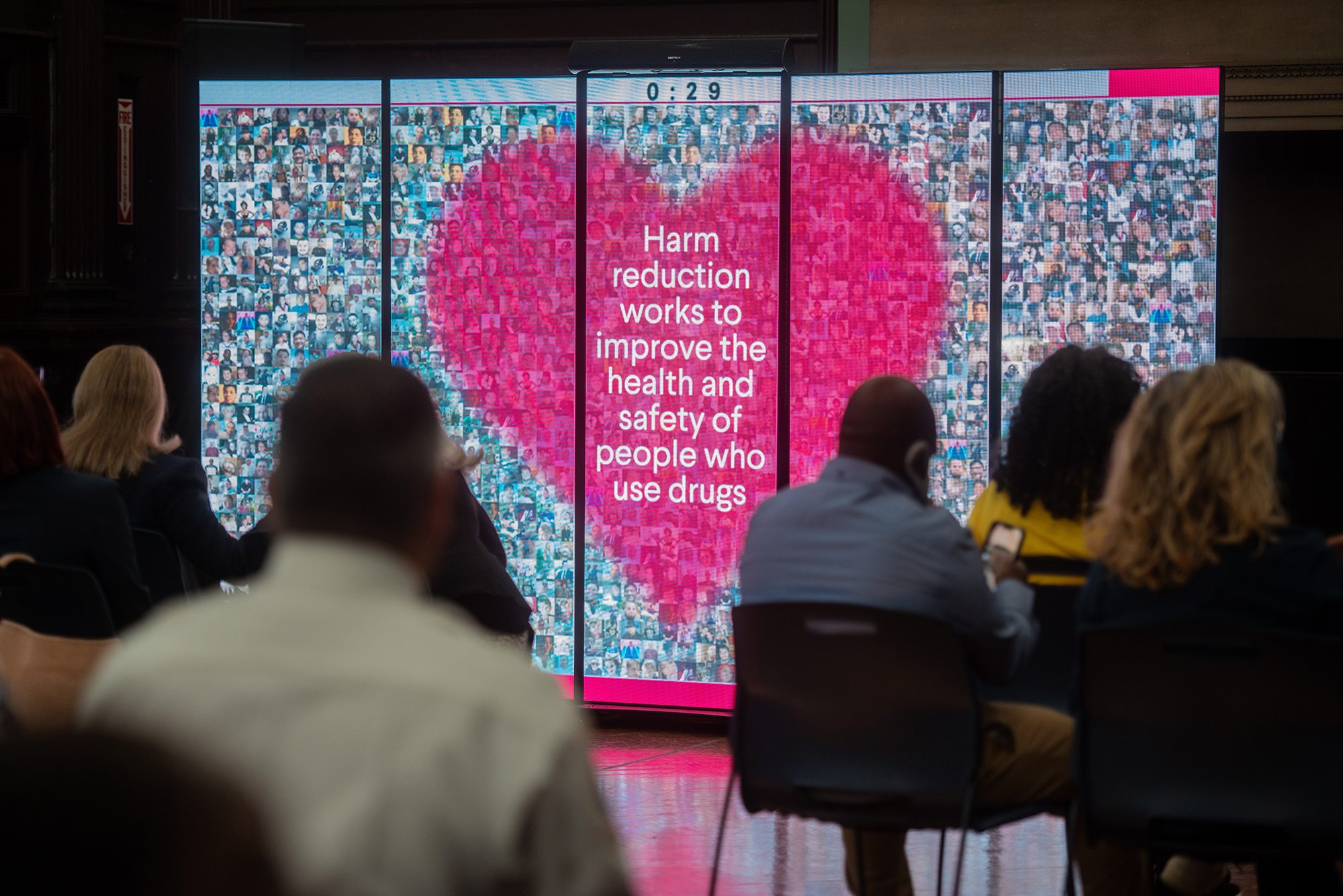Last year, in a landmark decision, a $26 billion nationwide settlement was reached with several major pharmaceutical companies for their role in fueling the overdose crisis. A total of 46 states and 90% of eligible local governments were included in the deal, resolving thousands of civil lawsuits brought against these companies by local and state governments. The settlement funds will be dispersed directly to states, counties, and municipalities across the nation over the next 18 years to support overdose prevention efforts and health care, a process that began in late 2022. The Vital Strategies Overdose Prevention Program is offering support, resources and guidance to state and local governments seeking to drive spending of these settlement funds towards health-oriented services that have been shown to reduce overdose and improve health outcomes.
A public health approach to drug use should center the health, dignity, and safety of people who use drugs and their communities. Decades of research has shown that widespread implementation of harm reduction strategies—such as access to naloxone, medications for opioid use disorder (MOUD), drug testing methods, and programs that provide safer drug use supplies—can substantially reduce rates of overdose death as well as other injuries and illness among people who use drugs. Meanwhile, punitive and coercive approaches like criminalization, incarceration, and involuntary treatment have repeatedly been shown to increase the risk of overdose deaths, create a more dangerous drug supply, and do not improve the health of people and communities.
Below are four ways that Vital Strategies is supporting state and local efforts to strengthen life-saving health initiatives using opioid settlement funds.
Matching Funds for North Carolina Counties That Invest Opioid Settlement Funds in Harm Reduction
As part of the national opioid settlement litigation, North Carolina counties and municipalities will receive over $640 million over the next 18 years, with several larger counties eligible for upwards of $1.5 million per year. Vital Strategies created a grants program offering up to $210,000 over three years in counties that agreed to allocate matching or greater amounts from their settlement funds to support local harm reduction programs. This open application process prioritized community-based services, a racial equity approach, and reaching the most marginalized communities across North Carolina.
Eight applicants representing 12 North Carolina counties were selected to receive funding that will help to expand community-based naloxone distribution and syringe service programs.
The North Carolina Community Foundation is working with Vital Strategies to help distribute these funds and collect data from counties on their progress. For more on this initiative, please see coverage in North Carolina Health News.
Michigan Opioid Settlement Funds Toolkit: A Guide for Local Spending
The state of Michigan is slated to receive nearly $800 million through the opioid settlements over 18 years, with approximately half of these funds going directly to counties and municipalities. The Michigan Association of Counties and Vital Strategies have produced a Michigan Opioid Settlement Funds Toolkit: A Guide for Local Spending. This new toolkit provides local governments, community organizations and health care providers with strategies for using the opioid settlement funds, especially in the hardest-hit areas.
The resource serves as a step-by-step guide for local governments seeking to implement and expand evidence-based overdose prevention efforts and harm reduction programs in their communities, with a focus on racial justice and health equity. A central feature of the toolkit is the recommended steps it offers to guide spending plans. In this section, jurisdictions can learn tips and strategies to strengthen their respective planning process, including for community engagement, information-gathering, assessing the best path to move forward, and monitoring spending. To accompany the toolkit, the Michigan Association of Counties will offer technical assistance to local leaders. For more information, please see the press release.
Opioid Solutions Leadership Network
The National Association of Counties, in partnership with Vital Strategies, established the Opioid Solutions Leadership Network, a national cohort of 30 county leaders pursuing evidence-based public health solutions to the overdose crisis that center the health of people who use drugs and those with substance use disorders. This network equips county stakeholders and decision-makers with the tools and guidance to explore and share opioid abatement strategies across the substance use continuum of care, including prevention efforts, substance use disorder treatment, and recovery and harm reduction programs with a particular focus on effective uses for opioid settlement funds.
The Opioid Solutions Leadership Network also provides participating county leaders the critical opportunity to collaborate through this process, share ideas about effectively investing settlement funds, and offer peer support.
Opioid Settlement Guides for Community Advocates
Vital Strategies is working with a range of partners across seven states to strengthen health-based, evidence-driven responses to drug use. To better support community organizations as opioid settlement funds begin to roll in, Vital Strategies published short, state-focused guides for advocates to encourage their engagement with decision-making processes for the use of these funds. Each guide provides key information on how states will receive and allocate opioid settlement funds, which officials and stakeholders will be involved in the key decision-making processes, tips on how to engage with these processes, and descriptions of accountability mechanisms for the tracking and monitoring of each state’s use of opioid settlement funds.
Below are links to each state guide:
The fact sheets are a companion to the guide “Principles for the Use of Funds from the Opioid Litigation,” a joint resource created by Vital Strategies and John Hopkins Bloomberg School of Public Health.
Kyli Rodriguez-Cayro is the content manager for the Overdose Prevention Program at Vital Strategies.
Get Our Latest Public Health News
Join our email list and be the first to know about our public health news, publications and interviews with experts.
